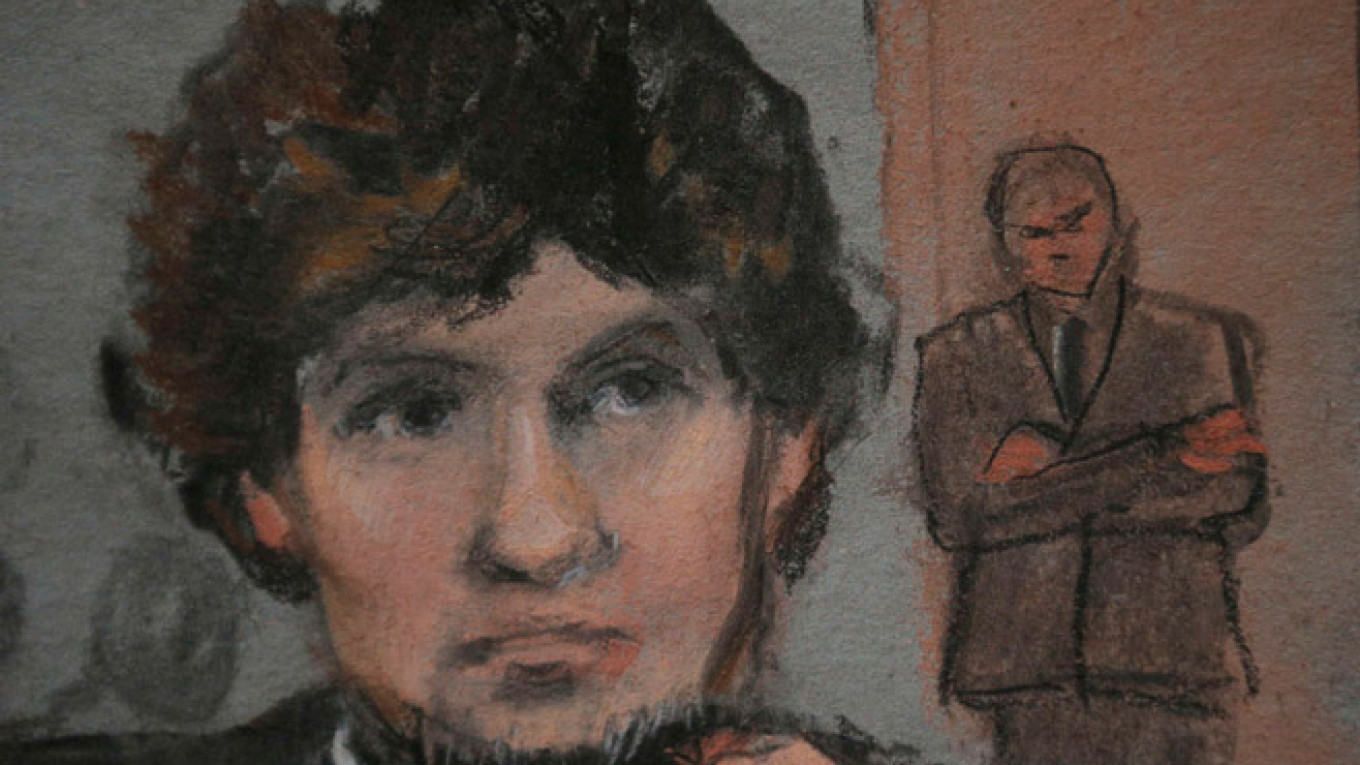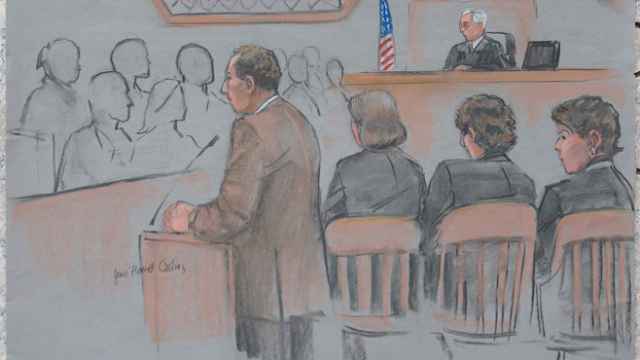Jurors in the trial on Tuesday of Boston Marathon bombing suspect Dzhokhar Tsarnaev got to see the blood-stained message that prosecutors say he wrote on the inside of a boat he was hiding in before his violent capture, explaining his reasoning for killing innocent people.
Federal prosecutors contend that Tsarnaev, who emigrated with his family from Chechnya, was driven by an extremist view of Islam and a desire to strike back at the United States in revenge for military campaigns in Muslim-dominated countries.
"We Muslims are one body you hurt one you hurt us all," the message read, citing what it said was aggression in Muslim lands. "I don't like killing innocent people it is forbidden in islam, but due to said [ ] it is allowed," the message read, with a word missing due to a bullet hole.
Boston Police Officer Todd Brown identified a picture of the message to the jury in U.S. District Court in Boston, showing bullet holes and blood dripping over the words.
Tsarnaev, 21, is accused of killing three people and injuring 264 with a pair of homemade bombs at the race's crowded finish line on April 15, 2013, as well as fatally shooting a police officer three days later as he and his brother tried to flee the city.
Defense lawyers argue that his older brother, 26-year-old Tamerlan, was the driving force behind the attacks and that his younger brother followed him out of a sense of submission. Tamerlan Tsarnaev died four days after the bombing when his younger brother inadvertently ran him over with a car as he fled a gun battle with police.
A defense attorney asked Brown, the police officer, whether any weapons were found in the boat where Tsarnaev was captured, or whether any of the bullet holes evident in the picture were from bullets being fired from inside the boat outward. He responded "no."
Earlier on Tuesday, an FBI agent testified that Tsarnaev attended the world renowned race the year before the attack and posted an ominous tweet about people being "defeated."
FBI agent Stephen Kimball said Tsarnaev, using the Twitter handle J_Tsar, wrote, "they will spend their money and they will regret it and then they will be defeated" on April 16, 2012, the day of that year's marathon.
Kimball said "yes" when asked if the FBI believed he attended the race in 2012.
Defense attorney Miriam Conrad questioned Kimball about other tweets from Tsarnaev, including ones citing rap lyrics, and jokes like "I want to study a broad or two."
"Is it fair to say that in addition to the 45 tweets that the government chose for you to introduce, there are a lot of tweets about things like girls, cars, food, sleep, homework, complaining about studying," she asked.
"Yes," Kimball responded. The jury has heard from 27 witnesses, including victims and emergency workers, during the trial's first three days. That brisk pace reflects the fact that defense lawyers, who opened their case by acknowledging that Tsarnaev committed the crimes he is accused of, have so far cross-examined only three witnesses.
The bombing killed Martin Richard, 8; Krystle Campbell, 29; and Lingzi Lu, 23. Massachusetts Institute of Technology police officer Sean Collier, 27, was shot to death three days later.
A Message from The Moscow Times:
Dear readers,
We are facing unprecedented challenges. Russia's Prosecutor General's Office has designated The Moscow Times as an "undesirable" organization, criminalizing our work and putting our staff at risk of prosecution. This follows our earlier unjust labeling as a "foreign agent."
These actions are direct attempts to silence independent journalism in Russia. The authorities claim our work "discredits the decisions of the Russian leadership." We see things differently: we strive to provide accurate, unbiased reporting on Russia.
We, the journalists of The Moscow Times, refuse to be silenced. But to continue our work, we need your help.
Your support, no matter how small, makes a world of difference. If you can, please support us monthly starting from just $2. It's quick to set up, and every contribution makes a significant impact.
By supporting The Moscow Times, you're defending open, independent journalism in the face of repression. Thank you for standing with us.
Remind me later.






